Filter by
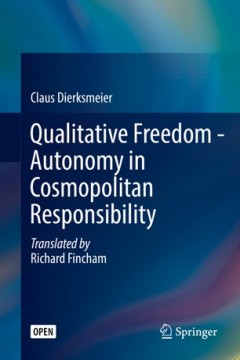
Qualitative freedom : autonomy in cosmopolitan responsibility
In the light of growing political and religious fundamentalism, this open access book defends the idea of freedom as paramount for the attempt to find common ethical ground in the age of globality. The book sets out to examine as yet unexhausted ways to boost the resilience of the principle of liberalism. Critically reviewing the last 200 years of the philosophy of freedom, it revises the princ…
- Edition
- -
- ISBN/ISSN
- 9783030047238
- Collation
- x, 365p. : ill.
- Series Title
- -
- Call Number
- 123.5 DIE Q

eIoT : the development of the energy internet of things in energy infrastructure
This open access book explores the collision between the sustainable energy transition and the Internet of Things (IoT). In that regard, this book’s arrival is timely. Not only is the Internet of Things for energy applications, herein called the energy Internet of Things (eIoT), rapidly developing but also the transition towards sustainable energy to abate global climate is very much at the f…
- Edition
- -
- ISBN/ISSN
- 9783030104276
- Collation
- xxviii, 160p. : ill
- Series Title
- -
- Call Number
- 333.79 MUH e
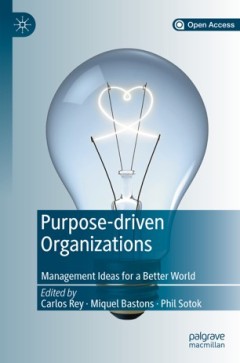
Purpose-driven organizations : management ideas for a better world
A higher purpose is not simply about profit. Symbolising the motivations of our actions and efforts, it reflects something much more aspirational and contributes to our global society. This open access book offers novel solutions to ensure employees support a wider organizational meaning whilst guaranteeing that the company benefits from the employee’s individual sense of purpose. Advocat…
- Edition
- -
- ISBN/ISSN
- 9783030176747
- Collation
- xxi, 138p. : ill.
- Series Title
- -
- Call Number
- 658.401 PUR p
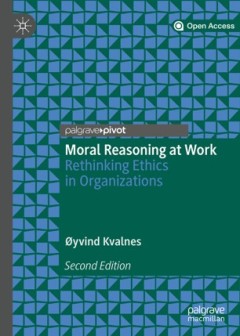
Moral reasoning at work : rethinking ethics in organizations
This book is open access under a CC-BY license. Moral dilemmas are a pervasive feature of working life. Moral Reasoning at Work offers a fresh perspective on how to live with them using ethics and moral psychology research. It argues that decision-makers must go beyond compliance and traditional approaches to ethics to prepare for moral dilemmas. The second edition has been updated with a rang…
- Edition
- -
- ISBN/ISSN
- 9783030151911
- Collation
- viii, 145p. : ill.
- Series Title
- -
- Call Number
- 174.4 KVA m

The ethics of vaccination
This open access book discusses individual, collective, and institutional responsibilities with regard to vaccination from the perspective of philosophy and public health ethics. It addresses the issue of what it means for a collective to be morally responsible for the realisation of herd immunity and what the implications of collective responsibility are for individual and institutional respon…
- Edition
- -
- ISBN/ISSN
- 9783030020682
- Collation
- xv, 126p. : ill.
- Series Title
- -
- Call Number
- 174.295372 GIU e

Moral History from Herodotus to Diodorus Siculus
Why did human beings first begin to write history? Lisa Irene Hau argues that a driving force among Greek historians was the desire to use the past to teach lessons about the present and for the future. She uncovers the moral messages of the ancient Greek writers of history and the techniques they used to bring them across. Hau also shows how moral didacticism was an integral part of the writin…
- Edition
- -
- ISBN/ISSN
- 9781474411073
- Collation
- VIII, 312 p.
- Series Title
- -
- Call Number
- 170.938 HAU m
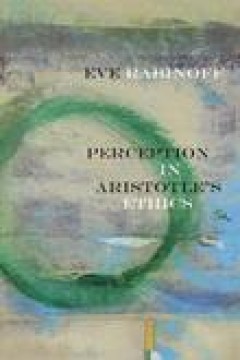
Perception in Aristotle’s Ethics
Rabinoff strives to account for ethical perception (aisthesis) in Aristotle’s ethics—to give it a place of importance in ethical choice and action—and to offer an account of the faculty of perception expansive enough to include reception of the ethical significance of particulars. The book is motivated by particular features of Aristotle’s thought and by increasing philosophical awarene…
- Edition
- -
- ISBN/ISSN
- 9780810136434
- Collation
- IX, 196 p.
- Series Title
- Rereading Ancient Philosophy
- Call Number
- 171.3 RAB p

Energy justice across borders
We must find new and innovative ways of conceptualizing transboundary energy issues, of embedding concerns of ethics or justice into energy policy, and of operationalizing response to them. This book stems from the emergent gap; the need for comparative approaches to energy justice, and for those that consider ethical traditions that go beyond the classical Western approach. This edited vol…
- Edition
- -
- ISBN/ISSN
- 9783030240219
- Collation
- xiv, 305p. : ill.
- Series Title
- -
- Call Number
- 333.79 ENE e
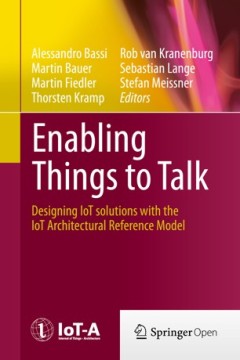
Enabling things to talk : designing IoT solutions with the IoT architectural …
The Internet of Things (IoT) is an emerging network superstructure that will connect physical resources and actual users. It will support an ecosystem of smart applications and services bringing hyper-connectivity to our society by using augmented and rich interfaces. Whereas in the beginning IoT referred to the advent of barcodes and Radio Frequency Identification (RFID), which helped to auto…
- Edition
- -
- ISBN/ISSN
- 9783642404030
- Collation
- x, 349p. : ill.
- Series Title
- -
- Call Number
- 004.678 ENA e
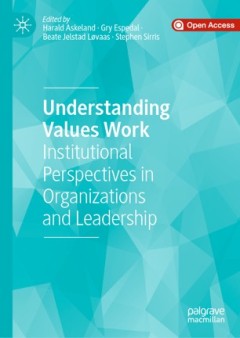
Understanding values work : institutional perspectives in organizations and l…
At the core of institutional theories, ‘values’ is a central term and figures in most definitions; however it remains understudied and under-explored. The editors of this open access book identify a resurgence of interest in the values-construct which underpins discussions of identity, ‘ethos’ and the purpose/nature of public and civic welfare provision. Considering the importance of va…
- Edition
- -
- ISBN/ISSN
- 9783030377489
- Collation
- xvii, 296p. : ill.
- Series Title
- -
- Call Number
- 658.314 UND u
 Computer Science, Information & General Works
Computer Science, Information & General Works  Philosophy & Psychology
Philosophy & Psychology  Religion
Religion  Social Sciences
Social Sciences  Language
Language  Pure Science
Pure Science  Applied Sciences
Applied Sciences  Art & Recreation
Art & Recreation  Literature
Literature  History & Geography
History & Geography